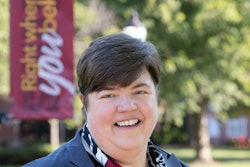While the number of minority students who have earned doctorates in science, engineering and health has steadily risen over the past two decades, minority doctoral holders are still poorly represented as faculty members within the ranks of American academe.
That’s the key finding of a new brief from the National Science Foundation, or NSF, titled “Academic Institutions of Minority Faculty with Science, Engineering and Health Doctorates.”
“Both minority doctorate numbers and minority faculty numbers remain low, especially in the leading research institutions,” the brief states. “Data on SEH doctorate recipients show that Blacks, Hispanics, and American Indians/Alaska Natives, as a group, earned about 3,300 SEH doctorates from U.S. universities in 2008, 9 percent of all SEH doctorates. Asians earned about 10,900 SEH doctorates in 2008, 31 percent of all SEH doctorates, most of which (81 percent) were earned by temporary visa holders.”
Besides just listing the sheer numbers of minority faculty members, the new NSF report provides a more nuanced, qualitative picture of the kind of institutions from which minority doctorates are graduating, the kind of faculty posts that they are landing, as well as more detailed information about the types of institutions where they are finding work.
In short, the study found that minority faculty members are less likely to land full professorships, less likely to win tenure, and less likely to work at research universities with very high research activity, or RUVHs, in relation to non-minority faculty.
Dr. Ansley Abraham, director of the Atlanta-based SREB-State Doctoral Scholars Program, which seeks to diversify the ranks of American college and university faculty members, says that aside from the need for American academe to be more accepting of minority candidates and their interests, the NSF brief also points to the need for minority candidates to navigate the system more wisely to reach higher ranks.
That could mean compromising on or forgoing minority-focused research interests in the early stages of one’s career, Abraham said.














